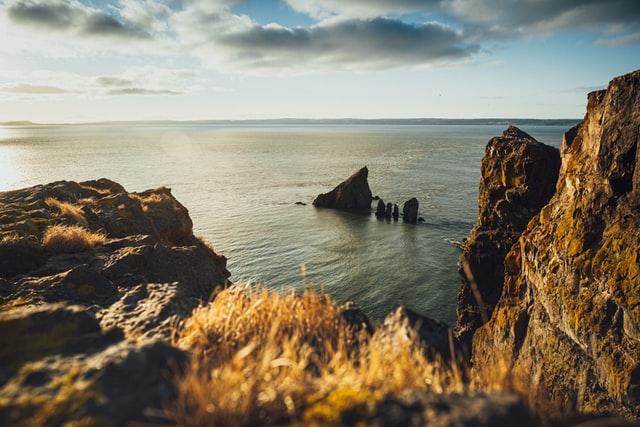Saint John, NB – The Minister of Transport, the Honourable Omar Alghabra, and the Member of Parliament for Saint John—Rothesay, Wayne Long, have announced an investment of up to $447 million to further protect and restore coastal ecosystems across Canada, as part of the next phase of Canada’s Oceans Protection Plan.
Since its launch in 2016, Canada’s Oceans Protection Plan has increased protections for our marine ecosystems and species, including the restoration of 60 marine ecosystems nationally. Moving forward, the Oceans Protection Plan will continue to protect these important coastal areas through actions such as:
- removing and disposing of wrecked, abandoned, and hazardous vessels to reduce hazards to navigation and harmful impacts to our waters across the country;
- providing new funding for aquatic restoration projects in coastal and upstream inland communities that protect and restore Canada’s coastal areas;
- reducing risks and mitigating damages related to marine habitats and coastal communities from marine shipping;
- introducing a ban on the use and transport of heavy fuel oil for many vessels in the Canadian Arctic, thus reducing the risk of heavy fuel oil spills in the region;
- working with Indigenous Peoples and coastal communities to conduct new regional assessments on cumulative effects of marine shipping and identifying potential mitigation measures; and
- investing in scientific research, monitoring, and protection measures to reduce the impacts of marine shipping activities and vessel-related traffic on whales and marine mammals.
The Oceans Protection Plan is a Canadian success story. When Indigenous Peoples, industry, communities, academia, and government work together to protect our environment, grow our economy, and support good jobs across the country, we deliver real results. A renewed and expanded Oceans Protection Plan will keep our oceans and coasts healthy, advance reconciliation, and build a clean future for our children and grandchildren.
“Through the Oceans Protection Plan, we are working to keep our waters clean and protect the rich biodiversity and ecological integrity of Canada’s marine ecosystems. By collaborating on these initiatives with Indigenous Peoples, industry, and communities, we can make a difference for generations to come”. – The Honourable Omar Alghabra
Minister of Transport
Quick facts
- The five-year Oceans Protection Plan was launched in 2016, representing the largest investment ($1.5 billion) ever made to protect Canada’s coasts and waterways. The funding announced is part of the Government of Canada’s Budget 2022 commitment to provide an additional $2 billion over nine years to renew Canada’s Oceans Protection Plan and expand its work into new areas.
- To date, the Oceans Protections Plan has delivered the following results to protect marine ecosystems and species:
- restored more than 650 million square meters of aquatic habitat under the Coastal Restoration Fund. This program has been replaced by the Aquatic Ecosystems Restoration Fund.
- funded 500 projects to remove and dispose of abandoned boats and reduce hazards to navigation and the environment in our waters across the country through programs to address vessels of concern.
- made it illegal to abandon vessels under the Wrecked, Abandoned or Hazardous Vessels Act and strengthened the owner’s responsibility and liability for their vessels.
- spent close to 45,000 hours by fishery officers supporting lead responders in marine mammal incidents and spent more than 15,000 hours monitoring marine protected areas.
- surveyed 25,000 kms of shoreline to understand habitat use and threats on our coasts and wildlife.
- helped support the survival and recovery of many threatened or endangered species including killer whales, and eight priority marine bird species.
- worked with Indigenous Peoples, local stakeholders, and coastal communities to assess the cumulative effects of marine shipping in six pilot sites across the country.
- funded research into new, economically viable and ecologically sustainable ways to recycle or reuse fiberglass used to construct pleasure craft hulls through the Innovative Solutions Canada program.













